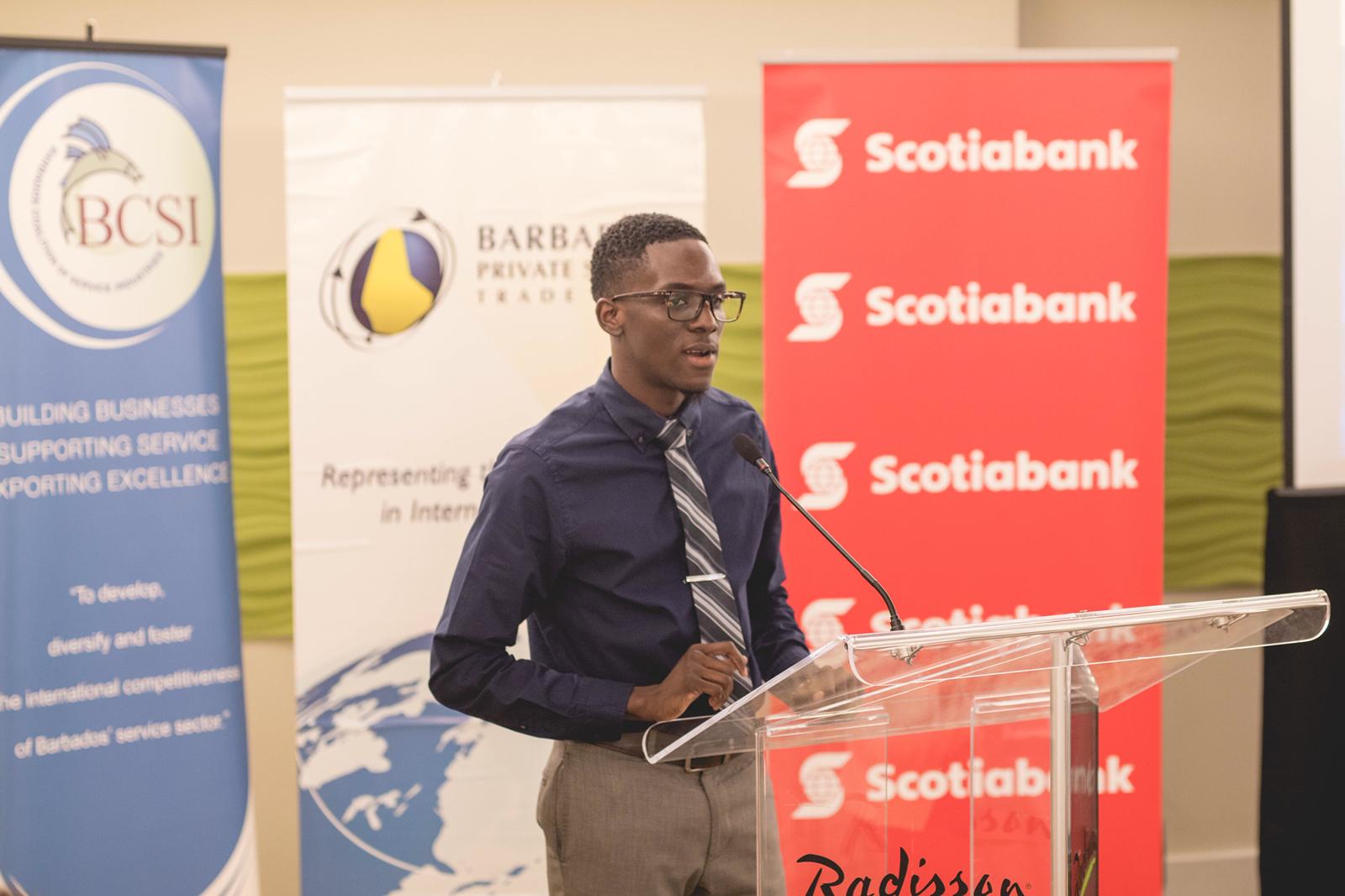Interview Series Part 1 of 5: Elihu Wahid, Barbadian International Trade Policy and Research professional. -- By Alberta Richelieu
Elihu believes that rethinking how parents and future parents raise their children is essential to keeping young adults engaged and confident in their abilities to succeed in the international arena.
“We need to allow our youthful population to live their lives based on a set of morals/ guiding principles as opposed to rules. Rules are often made within a certain framework, which make them applicable to a situation where certain limitations are present; however, these rules become counterproductive where these limitations are removed (due to a variety of circumstances such as technological change, geopolitics, climate change, etc.). However, when we decide to educate our youth and female population within a set of guiding principles, it is only then that regardless of any situation, which arises that we can expect them to make the best decision. I like to refer to this as building a culture of support as opposed to a culture of control.”
He emphasized that with a culture of support; youth will be more ready to take on any challenge regardless of the circumstances. He expanded further by highlighting that with a culture of control, confidence withers away with the slightest change in circumstance.
In order to push the agenda for social change, Elihu believes that young women need to recognize and believe in their own power. Confidence in their capacity to succeed and overcome challenges is therefore essential. “Young women must believe in their power as consumers, their power as a large portion of the electorate and their power as a voice within society.” He underlined a lesson which was highlighted by someone influential in his life, that served as a positive elucidation of the importance of letting go of fears, and recognizing individual powers and capabilities. “A mentor once told me that in life you never get what you deserve, only what you negotiate. Therefore, young women must bargain hard. Offer your support only to those businesses and political causes that align with your agenda.”
As an avid promoter of believing in one’s self and capacities, Elihu stressed the need to believe within yourself that your time is now, rather than your time is coming. Essentially, take actions now in order to allow for the future you want. Hard work must be undertaken now in order to build for the outcome you desire. “This means the time for empty promises and best endeavour language have passed; you must strategically aim to remove the barriers to full participation within the economy and society, and compromise only when it allows for an improvement of circumstances.” He concluded by stating that, “the time has passed for standing in line and compromising for the sake of compromise.”
Elihu views teaching and building skills in entrepreneurship and embracing mentorship as critical to towards the development of Caribbean economies. “The biggest revelation of my entire life has been [that] it’s ok to make mistakes.” He further stressed that both mentorship and entrepreneurship encompasses this revelation. “We are often afraid to share ideas or tackle complex problems for fear of ridicule or just being wrong. Having guidance really takes the edge off of these concerns. It is often said that we never hear of the smartest ideas, only the loudest; because the smarter people are often afraid to speak up.” Therefore young people and women have to remove the fears for speaking up for the things that matter most to them. They have to ensure that their voices are being heard in the arenas that have the most impact.
He continued by stating: “The more we move towards entrepreneurship and mentorship, I believe, the more we will see innovative ideas coming to the forefront of our societies.” We have to recognize that failure will often occur, but that the best innovations have sprung out of failures. Therefore, do not be afraid to fall down. It is how you get back up that matters most.
As a young professional male, Elihu views the role of men and boys as critical in the workplace. “I think men and boys must first think through and understand the privileges they enjoy from gender inequality. It is only after males are aware of these privileges can a conversation be conducted concerning the removal of said privileges and an understanding of the plight of the woman. The patriarchal design of our post-colonial societies has made it such that the cooperation of men is needed.” He concluded by stating: “Therefore, we must educate males further so that they too can use their power to drive the agenda for gender equality within society.”
Elihu Wahid, affectionately known by his peers as Eli, is a Programme Officer in International Trade Policy and Research at the Barbados Coalition of Service Industries. In 2014, Elihu attained a Bachelor of Science in Economics and Law from the University of the West Indies Cavehill Campus. Developing a passion for trade and desire to contribute to the socioeconomic development of the Caribbean, Eli then pursued a Master of Science in International Trade Policy.
Currently, he works at the Barbados Coalition of Service Industries (BCSI) where he actively consults in initiatives aimed at strengthening new and existing arrangements for the promotion and development of trade in services, locally and internationally.
Overall, Mr. Wahid’s experience and interests bear great testament to his passion and dedication to regional and international trade, the promotion of cultural industries as well as the importance of regional integration in the Caribbean.

